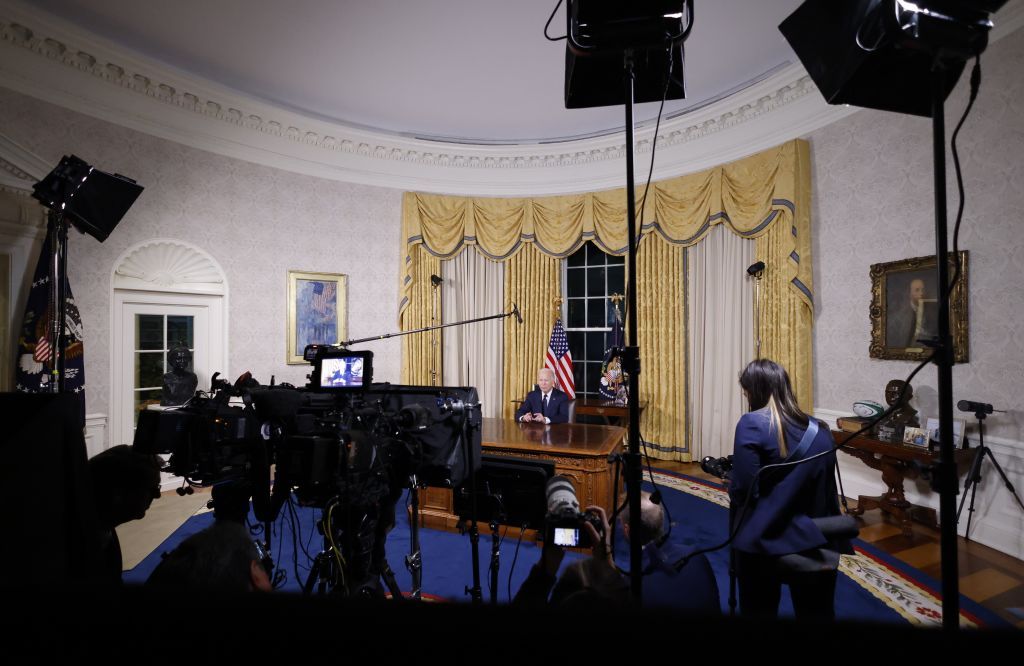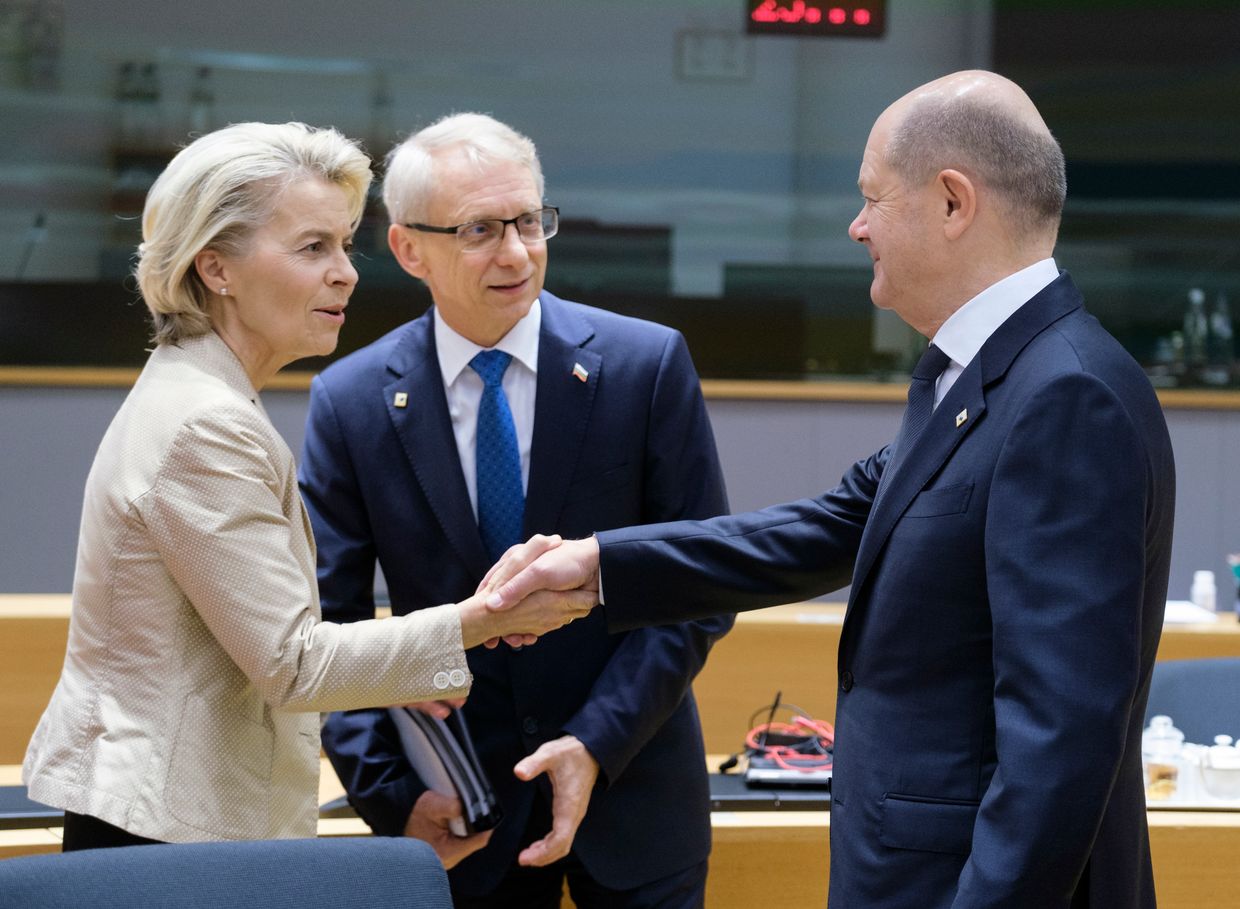'We can't allow Putin to prevail,' says Speaker Johnson after being elected, but his track record says opposite

Representative Mike Johnson, elected speaker of the U.S. House of Representatives on Oct. 25, has been deemed bad news for Ukraine.
Johnson regularly voted against aid for Ukraine and was backed by the Ukraine-skeptic hard-right in his bid for speakership after the weeks-long scramble to replace the ousted Representative Kevin McCarthy.
The previously low-profile representative has suddenly found himself to be a key decision-maker in Congress, deciding which bills are introduced to the floor of the House narrowly controlled by his party.
Johnson will now face competing priorities, from averting the looming government shutdown to considering aid requests for Israel and Ukraine.
"It was pretty easy for him to take that (negative) position when he was a back-bencher in the House with very little influence," said Tom Malinowski, a former Democratic congressman from New Jersey.
"It is going to be much harder now when he may be single-handedly held responsible for what happens next. I don't think Johnson is going to want to be held responsible for Russia winning this war."
Ukraine question
With the Ukrainian counteroffensive stalling in the south, Kyiv's attention will likely shift to ensuring continued military and financial support from its allies.
But even after Johnson's appointment, both lawmakers and observers remain puzzled by the speaker's foreign policy agenda.
His voting record, which received an "F" on the Republicans for Ukraine "report card," reflected the lack of support for Ukraine since the start of the full-scale invasion. Becoming the third most influential person in the country, Johnson has been careful in how he talks about Russia's ongoing war.
"We can't allow Vladimir Putin to prevail in Ukraine because I don't believe he would stop there," Johnson told Fox News, in the first interview since his appointment.
But, the litmus test for Johnson will come up soon.
Amid the chaotic speaker selection, U.S. President Joe Biden asked for $61.4 billion in assistance for Ukraine on Oct. 20 as a part of the broader $105-billion-dollar request, which also included emergency aid to Israel.
Explaining the decision in an address to the American public, he characterized the support of allies as a national security priority.
Johnson has already said that the funding requests for Ukraine and Israel should be considered separately, citing the need for accountability and a clear vision from Biden after meeting the president.
Four Republican senators introduced an act that would decouple the two issues on the same day.
"We want to know what the objective there is, what is the endgame in Ukraine. The White House has not provided that," said Johnson.
Melinda Haring, a nonresident senior fellow at The Atlantic Council think tank and senior advisor at Razom for Ukraine non-profit, said the advocacy groups are not panicking despite the legislator's mixed track record.
"We think he is open to arguments and that he will not block a Ukraine bill from going to the floor," Haring said in an interview with the Kyiv Independent.
Yet, Haring said splitting up Ukraine and Israel aid would be "the wrong way to go," because it could complicate the passage of the Ukrainian part.
Malinowski said the nervousness about the split comes from extending the decision-making timeline on Ukraine when it is separated from the pressing needs in Israel.
"If Johnson were to say we are going to have separate votes, but I guarantee a vote on Ukraine soon, that would be fine," Malinowski said. "What we have to guard against is separation as a means to delay the vote on Ukraine indefinitely."
When asked if he supports additional Ukraine aid by reporters on Oct. 26, Johnson said, "We all do…we are going to have conditions on that, so we're working through it" in discussions about accountability and clear objectives.
Biden previously said that "Ukraine will never be a victory for Russia," and reiterated that the U.S. is not planning on withdrawing its support in the October speech. Former U.S. Ambassador to Ukraine Steven Pifer said the Biden administration could further clarify the objectives, which should be supporting Ukraine until it defeats Russia.
"I don't know how far Vladimir Putin's ambitions extend," said Pifer. "In the case of Ukraine, we are providing weapons. In the case of Estonia, Latvia, Lithuania, Poland, or Finland, we would be providing American troops. It is better to stop Putin in Ukraine."
Johnson's calls for accountability are not new.
In February, Johnson wrote that the Americans "deserve to know if the Ukrainian government is being entirely forthcoming and transparent about the use of this massive sum of taxpayer resources" on Twitter, now known as X.
Malinowski said Johnson's discussions on accountability in the recent days "suggested that he is looking for a way to get to 'yes' on Ukraine aid" through negotiations.
Pifer agreed with the need for clear messaging from the administration while saying some people use it as an excuse to oppose assistance, "which is very hard to justify and is not in the U.S. national interest."
Congress already provided more than $113 billion in funding for the Ukraine response across 11 U.S. Government departments and agencies, with accountability measures in place.
In September, Robert P. Storch was selected as the Lead Inspector General to "deliver comprehensive and effective oversight of the American response to Russia's full-scale invasion."
As the conversation about additional support continues, Haring will watch who advises Johnson on national security and track public opinion.
"When you are not in Washington … "It is easy to assume that the noise within the Republican party represents something big and great, but the majority of Americans still support Ukraine," said Haring.
The polls from this fall present a mixed picture.
Reuters/Ipsos poll showed the support for arming Ukraine decreasing across the board over the summer — some 52% of Democrats and 35% of Republicans backed arming Ukraine. 41% of its respondents agreed that Washington "should provide weapons to Ukraine."
The Chicago Council on Global Affairs claimed over 60% of Americans back continued military assistance, with stronger support among Democrats.
According to Marianna Tretiak, advocacy national chair at the Ukrainian National Women's League of America, Ukrainian supporters have a lot of work going forward.
"The voice has to be constant, the pressure has to be constant, the conversation has to be constant," said Tretiak. "As advocates, our number one job needs to be constantly engaging with the American community.












